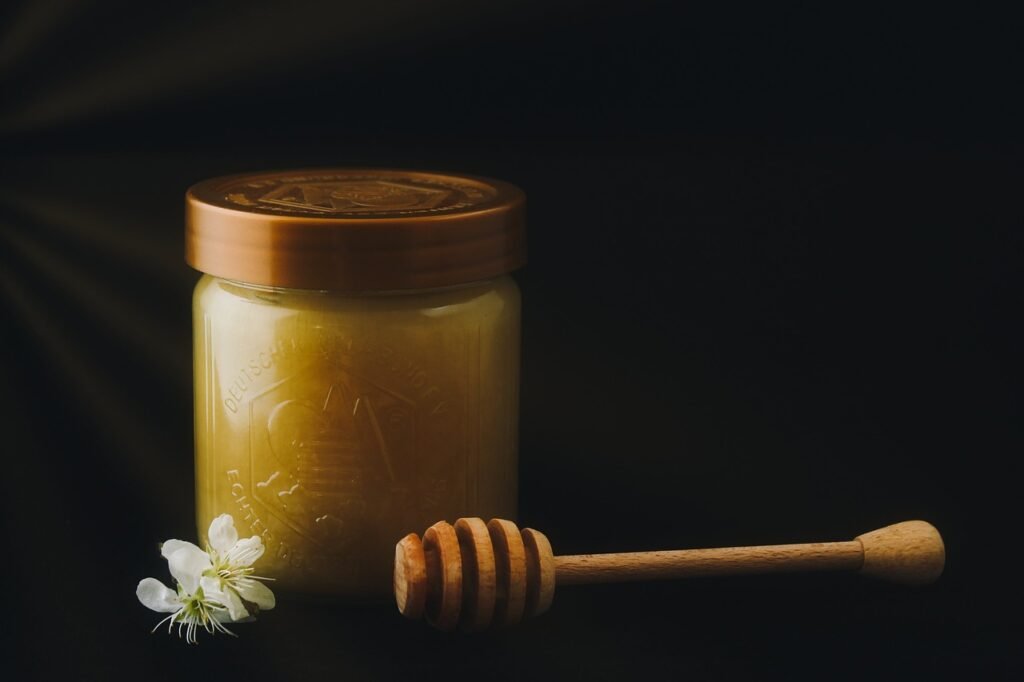Asthma is a respiratory disease. It affects the lungs. Asthma makes our daily lives difficult. During an asthma attack, the airways swell. The muscles contract. And excess mucus accumulates in the airways. As a result, coughing and chest tightness are felt. These symptoms make it difficult to do our daily physical activities and breathe.
You may wonder if there is any way to reduce these symptoms naturally. However, taking medication on the advice of a doctor is very important.
However, some natural ways and home remedies (home remedies for asthma) can reduce your physical symptoms. According to research, 13 complementary therapies can help us control asthma.
Asthma Causes & Symptoms

Asthma is usually an inflammation of the airways, which is caused by hypersensitivity. Asthma can be triggered by various reasons, such as:
Causes of Asthma
- Allergens: For many of us, allergies are one of the causes of asthma. Dust, pollen, pet dander, mould, and even cockroach droppings can irritate the airways and worsen asthma symptoms.
- Environmental Factors: Air pollution, smoke, chemical odours, car exhaust, gas odours. or cold weather can sensitize the airways, increasing asthma attacks.
- Respiratory Infections: Common colds, viral flu, or lung infectionscan exacerbate asthma symptoms. Especially in children and older members of our families.
- Genetics: If someone in the family has asthma, the chances of other members developing this problem are very high.
- Physical Activity: If we exercise or run excessively, breathing problems may occur. This is called Exercise-Induced Asthma. This problem may be more severe in cold or dry weather.
- Stress & Emotions: Excessive stress, anxiety, or emotional reactions (such as excessive laughing. It can cause airway constriction and worsen asthma symptoms.
Symptoms of Asthma
- Shortness of breath (difficulty breathing)
- Cough (especially worse at night or in the early morning)
- A feeling of tightness in the chest
- Wheezing (a whistling or whistling sound when breathing)
- A persistent cough that doesn’t go away easily
- Disrupts sleep
15 Home remedies for asthma

In addition to the medicines given by the doctor. Home remedies for asthma play a very effective role in such symptoms. Let’s know the 15 best home remedies for asthma–
1.The Gut Microbiome
Various studies show the benefits of the gut microbiome. Asthma is related to the balance of beneficial bacteria in our intestines. Suppose the balance of this bacteria in our body is disrupted. Then, asthma symptoms can be more severe.
In this case, taking probiotics (such as yoghurt and fermented foods) can improve intestinal health. And inflammation can be reduced. A 2021 study shows that taking probiotics and regular asthma treatment improves all these symptoms.
Probiotics are beneficial bacteria which maintain good intestinal health. And can help reduce inflammation. It is found in various fermented foods, such as:
- Yogurt or Kefir
- Sauerkraut – Fermented cabbage
- Tempeh – A high-protein fermented food made from soybeans.
- Kimchi – A spicy and tangy fermented vegetable that provides beneficial bacteria for the gut.
- Miso – Made from fermented soybeans.
- Kombucha – Fermented tea is a good source of good bacteria.
You can take probiotic supplements if you want. However, it is best to get probiotics from food. And home remedies for asthma.
2.Beta-carotene, vitamin C, vitamin E

Suppose we are overweight or obese. Then, the risk of asthma may increase. At the same time, all these symptoms may be more severe. So it is very important to keep the body weight under control. And follow a balanced diet. You should have plenty of fruits and vegetables in your daily diet.
Because the beta-carotene, vitamins C and E present in them act as powerful antioxidants for the body. Carrots contain 8% protein.
These ingredients can help reduce inflammation around the airways, which makes breathing easier.
Note: However, if your asthma symptoms increase after eating a certain food. Then, it may be a food allergy, which can further aggravate your breathing problems.
3. Ginger
Ginger can reduce inflammation naturally. And is very helpful in severe asthma. It contains a substance called 6-gingerol. Which can reduce allergic inflammation of the lungs. This has been proven in studies.
Studies have shown that ginger can reduce lung inflammation caused by dust, which can benefit asthma patients.
In addition, studies have also shown that ginger can relax the muscles of the airways and trachea. As a result, breathing is easier. It can even benefit patients suffering from Acute Respiratory Distress Syndrome (ARDS) because it reduces the pressure on the respiratory system.
4. Garlic
Garlic has numerous health benefits. One of which is its anti-inflammatory properties. According to research, regular garlic can be beneficial since asthma is an inflammatory problem of the airways.
A 2019 study showed that garlic extract significantly reduces the amount of inflammatory cells and white blood cells called eosinophils. This also reduces bronchial inflammation.
it is still not certain whether garlic prevents asthma attacks. Therefore, it can be used as an auxiliary ingredient in home remedies for asthma. However, we must consult a doctor.
5. Omega-3 Oils
Omega-3 fatty acids are well-known as healthy fats. They are found in fish and flax seeds. Studies have shown that they help reduce airway inflammation. This can help control asthma symptoms to some extent.
Some studies have suggested that people. who take high doses of oral steroids may not get as much benefit. From omega-3s from food or fish oil supplements. This is because steroids can block the beneficial effects of omega-3s.
6. Honey

We have all used honey as a home remedy for colds and flu. It is also a very effective home remedy for asthma. It helps to keep the throat soft and reduce cough. In particular, mixing honey with hot drinks (such as herbal tea) can help to ease breathing.
A 2019 study found that honey can improve respiratory function. However, it is more effective when taken with other ingredients like cumin. That is, honey alone is not a reliable solution for asthma. Rather, it can act as an adjunct.
7. Breathing Exercises
Various breathing exercises can help relieve asthma symptoms. Two of the most popular methods are:
Buteyko Breathing Technique (BBT)
This method emphasizes breathing through the nose. Because breathing through the mouth can dry out the airways and make them sensitive.
This technique can reduce our asthma symptoms by breathing slowly and gently.
Some people believe it increases carbon dioxide levels in the body, but insufficient scientific evidence supports this claim.
However, research has not confirmed that it can reduce the use of asthma medications. However, regular practice can protect the airways from becoming sensitive to some extent.
8. Papworth Method
It is a breathing and relaxation technique used since the 1960s. It is an effective exercise for asthma patients and home remedies for asthma.
Develops the habit of breathing using the nose and diaphragm.
With regular practice, this breathing method can be applied in various situations, especially when asthma is at risk.
Studies have shown that it improves lung function and the breathing process.
However, special training is recommended to learn it properly to be applied correctly in daily life.
9. Yoga
Yoga is a type of exercise. It involves breathing exercises and stretching our bodies. These exercises help increase flexibility and overall well-being. Yoga helps in reducing stress, which can be an asthma trigger for many.
Studies have shown that regular yoga practice reduces asthma attacks.
A 2023 study said that Yogic Breathing can control mild to moderate asthma symptoms.
Mental Strategies

Research has shown that asthma can have psychological causes. In addition to physical and environmental factors. such as—
- Stress
- Anxiety
- Depression
Therefore, mental relaxation techniques and psychotherapy can help us reduce the incidence of asthma.
10. Hypnotherapy
Hypnotherapy is a psychological treatment method. In which people are deeply relaxed. And help them control their mental and physical reactions. This method can relax the respiratory muscles. Which helps reduce chest tightness.
A 2021 study found that people with psychologically induced asthma. A very effective home remedy for asthma.
11. Mindfulness & Meditation
Mindfulness is a type of meditation that focuses attention on the present moment. It can be practised anywhere—
- sitting in a quiet place
- closing your eyes
- observing your thoughts, feelings, and body reactions
This practice reduces stress, which can help manage the emotional symptoms of asthma.
12. Caffeine

Caffeine is a bronchodilator. Which helps to widen our airways.
A 2022 study found that drinking 0.5 to 3 cups of coffee or tea a day may reduce the risk of asthma, especially in adults.
Consuming 160-305 mg of caffeine daily may reduce asthma risk in adults.
Another 2020 study found in the Korean population that drinking 1-2 cups of coffee a day for women may help reduce the risk of asthma.
However, it is very important to keep the dose under control.
13. Acupuncture
Acupuncture is an ancient Chinese medical practice. Where fine needles are inserted into specific points on our bodies. It can be a very effective home remedy for asthma.
Acupuncture is said to improve airflow and reduce chest pain.
A 2017 study found that acupuncture effectively treated asthma caused by allergies.
Another 2015 study found that people who underwent acupuncture had better immune systems. And lung function than those who took only standard medications.
However, the long-term effectiveness of acupuncture for asthma has not yet been fully proven.
14. Speleotherapy
Speleotherapy is dry salt therapy. Where a certain amount of time is spent in a salt chamber. And small salt particles are inhaled.
A 2018 study found that after 4 weeks of speleotherapy, asthma symptoms in children improved. Nitric oxide levels in the body increased, which is a sign of reducing asthma inflammation.
A 2020 study said. Speleotherapy with winter exercise or sports can reduce asthma symptoms.
15. Turmeric
Turmeric is a natural anti-inflammatory and antioxidant-rich ingredient. Which can help reduce asthma inflammation and is a great home remedy. The main ingredient of turmeric ‘curcumin’ helps reduce airway inflammation. And makes air movement easier. Studies have shown that turmeric reduces airway constriction. It can help normalize breathing.
Mixing a pinch of turmeric with milk or hot water and eating it will effectively reduce respiratory inflammation.
However, consuming excess turmeric can cause stomach problems in some people, so it is better to consult a doctor before regular use.
Home Remedies For Asthma Cough In Kids

Children in our house suffer a lot from asthma. Let’s know some home remedies for asthma cough in kids –
- Breathing Techniques: Breathing through the nose, slowly. The practice of holding one’s breath for a while also helps reduce asthma symptoms in children.
- Honey :The density of honey forms a coating on the throat, reducing children’s irritation and cough.
- Exercise: Regular light exercise improves the lung function of children. And can help reduce breathing problems.
- Air Quality: Air Quality Keep the air around your baby clean and dust-free. Controlling the humidity of the air can help reduce breathing problems.
- Avoid Triggers : Avoid cold air, dust, smoke, and pet dander.
- Dietary Changes: Foods like almonds, broccoli, and kale contain vitamin E, which can help reduce inflammation in the airways.
Some Other Home Remedies For asthma
- Garlic & Ginger: These will help reduce breathing problems as they have anti-inflammatory properties.
- Omega-3 Oils: Omega-3 fatty acids play an effective role in reducing lung inflammation.
- Buteyko Breathing Technique (BBT): This technique of breathing through the nose helps to relax the airways.
When to Seek Help?
Every child’s body reacts differently, so it is important to seek medical advice to understand which method will be effective for him.
Asthma Treatment
Asthma cannot be cured completely. There are several treatment methods to control it. The most common treatment is an inhaler, which delivers medicine directly to the lungs. It is also possible to control its symptoms by taking regular medicines as advised by the doctor and with the help of Home remedies for asthma.
Types of Inhalers
There are two main types of inhalers:
- Bronchodilators: (e.g., Salbutamol): which open the airways and relieve symptoms.
- Steroids(e.g., Beclometasone) : Reduce inflammation in the airways and reduce the risk of severe asthma attacks and death.
People with asthma may need to use their inhalers every day. Their treatment will depend on the severity of their symptoms. And the type of inhalers available.
Asthma is a chronic disease. It can be controlled with regular treatment and care. However, some natural or home remedies for asthma can help control your symptoms. Such as honey, ginger, garlic, breathing exercises, and an appropriate diet.
It is important to remember that these methods can only be helpful. It is best not to try any new treatment or method without consulting your doctor.
FAQ-
What is the fastest way to relieve asthma?
The fastest way to relieve asthma is by using a fast-acting inhaler (bronchodilator) to open the airways and ease breathing.
How can I reduce asthma in my home?
You can reduce asthma in your home by –
- Keep your home dust-free
- use air purifiers
- avoid smoke
- and maintain good ventilation to reduce asthma triggers.
How Can I Treat My Asthma On My Own?
- Manage asthma by
- using prescribed inhalers
- avoiding triggers
- practising breathing exercises
- and maintaining a healthy lifestyle with proper nutrition.
How to Stop An Asthma Cough?
Use your inhaler as prescribed, stay hydrated, and avoid cold, dry air or irritants that trigger coughing.
Is garlic good for an asthmatic person?
Garlic may help reduce inflammation and improve lung function. But always consult your doctor before adding it to your routine.
Is Hot Air Bad For Asthma?
Yes, hot air can aggravate asthma symptoms by causing the airways to tighten, leading to discomfort.
Does Rain Affect Asthma?
The rain itself doesn’t affect asthma. However, the increase in mould, polle. And humidity may trigger symptoms in some individuals.


